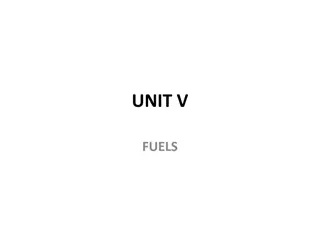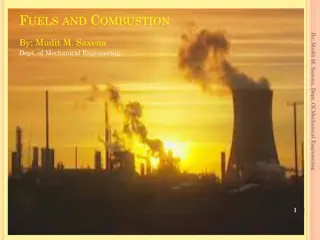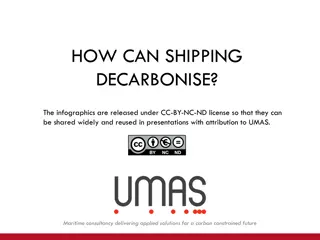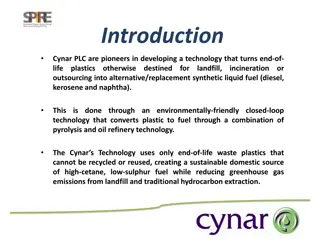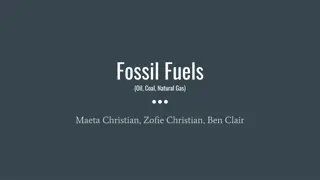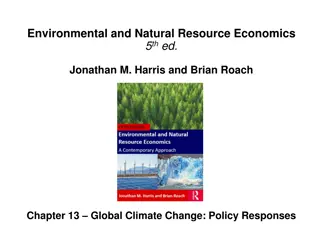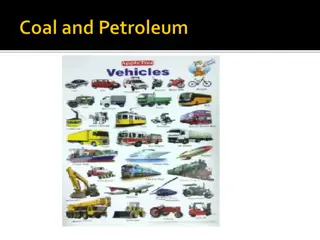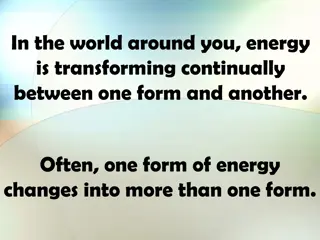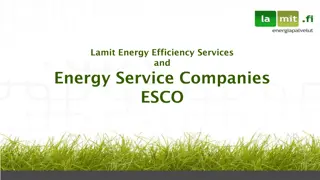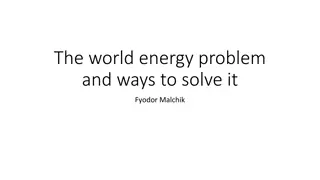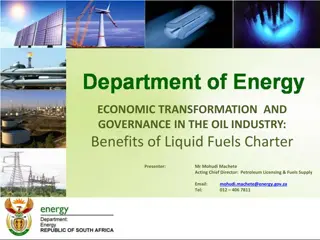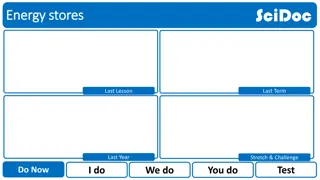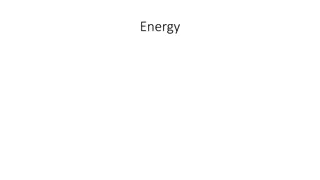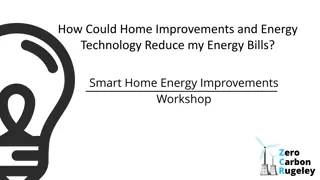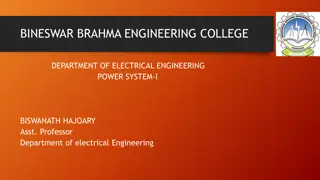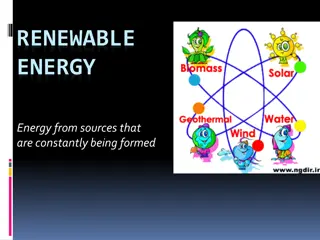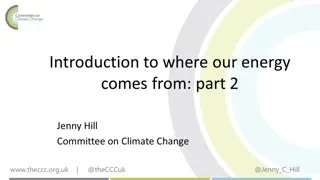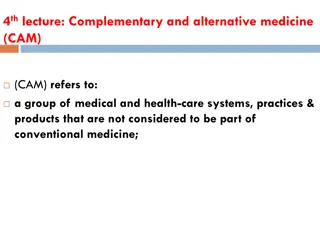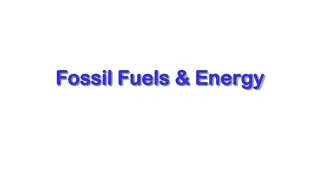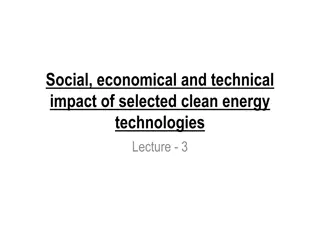The Evolution of Alternative Fuels in Addressing Energy Security
Amid historical warnings of overdependence on foreign oil, this piece emphasizes the importance of exploring alternative fuels to ensure energy security. With a focus on real-time solutions and the potential of existing technologies, the narrative underscores the urgency of transitioning away from traditional fuel sources. Through discussions of national goals, security threats, and current oil consumption trends, the text advocates for a proactive approach towards embracing alternative energy sources.
Download Presentation

Please find below an Image/Link to download the presentation.
The content on the website is provided AS IS for your information and personal use only. It may not be sold, licensed, or shared on other websites without obtaining consent from the author. Download presentation by click this link. If you encounter any issues during the download, it is possible that the publisher has removed the file from their server.
E N D
Presentation Transcript
Alternative Fuels Best Kept Secrets: Frequently Un-Asked Questions and Answers You Need to Know Jeff Stewart President Blue Star Gas
"Let this be our national goal: At the end of this decade, in the year 1980, the United States will not be dependent on any other country for the energy we need to provide our jobs, to heat our homes, and to keep our transportation moving." Excerpt from Richard Nixon s State of the Union address given Jan. 30, 1974.
"We are now paying out $25 billion a year for foreign oil. Five years ago we paid out only $3 billion annually. Five years from now, if we do nothing, who knows how many more billions will be flowing out of the United States. These are not just American dollars, these are American jobs." Excerpt from Gerald Ford s Address on Energy Policy given May 27, 1975
"The nation's growing reliance on imports of oil ... threatens the nation's security." Excerpt from President Clinton s Statement on Energy Security given Feb. 16, 1995.
We cannot keep going from shock to trance on the issue of energy security. President Obama, March 30, 2011.
Step 1: Increase Demand Step 2: Reduce Supply Step 3: Buy all the rest of what we need from people that hate us. Peter Schwartz GBN
US Oil Consumption, Percent Imported 80% 71% 70% 62% 60% 56% 53% 50% 45% 42% 37% 40% 36% 27% 30% 22% 20% 20% 17% 10% 8% 10% 0% 1950 1955 1960 1965 1970 1975 1980 1985 1990 1995 2000 2003 2008 2010
Four Premises One: Alternative Fuels to gasoline and diesel fuel. Two: Our addiction to foreign oil places our national security at risk Three: Transportation is a good place to look for alternatives and find remedies. Four: Since the PROBLEM isHERE TODAY we must consider technologies that are HERE TODAY.
Deutche Bank Economic Study - 2010 For every one cent increase in gas cost there's an annual $1.4 billion dollar loss in Consumer spending.
THERE IS NO ONE SIZE FITS ALL ALTERNATIVE FUEL CHOICE
Seven Criteria for Alt Fuel Considerations 1. Emissions Reductions 2. Fuel Cost Savings 3. Cost of Fuel Infrastructure 4. Implications of Operating Pressures 5. Incremental Cost of Vehicle Equipment 6. Vehicle Range 7. Vehicle Payload
FUEL SAVINGS COMPARISON AUTOGAS CNG ETHANOL ELECTRIC Fuel price per gallon (GGE) $2.54 $2.24 $3.53 $3.08 Fuel savings per gallon (GGE) $1.10 $1.26 $0.30 $0.55 (Based on $3.85/gal gasoline) GHG emissions reduction 23% 28% None 25% (lifecycle emissions vs. gasoline vehicles)
What About Infrastructure? INFRASTRUCTURE COMPARISON AUTOGAS CNG ETHANOL ELECTRIC Rated Storage Pressure 250 psi 3600 psi N/A N/A Fueling Station $20,000-$60,000 $400,000-$1.7M $120,000 $50,000 Fast Charge Station Tank Fill Time 10-12 gals/min 6-8 gals/min 8-10 gals/min 30 Minutes
What About Cost, Range and Payload? COST, PAYLOAD, RANGE COMPARISON AUTOGAS CNG ETHANOL ELECTRIC Additional cost per vehicle $6,000 $12-15,000 $0 $10-$15,000 Payload Capacity -6% -16% No Change N/A Driving range vs. gasoline vehicles 90% 60% 75% Under 90 miles
FUEL SAVINGS COMPARISON AUTOGAS CNG ETHANOL ELECTRIC Fuel price per gallon (GGE) $2.54 $2.24 $3.53 $3.08 Fuel savings per gallon (GGE) $1.10 $1.26 $0.30 $0.55 (Based on $3.85/gal gasoline) GHG emissions reduction 23% 28% None 25% (lifecycle emissions vs. gasoline vehicles)
Question & Answers www.allianceautogas.com www.bluestargas.com Jeff Stewart President Blue Star Gas jstewart@bluestargas.com
Company Locations Oregon Salem, Oregon McMinnville, Oregon Eugene, Oregon Grants Pass, Oregon Medford, Oregon Brookings, Oregon Washington Seattle, Washington California Santa Rosa, California Mt. Shasta, California Redding, California Crescent City, California Garberville, California Clear Lake, California


